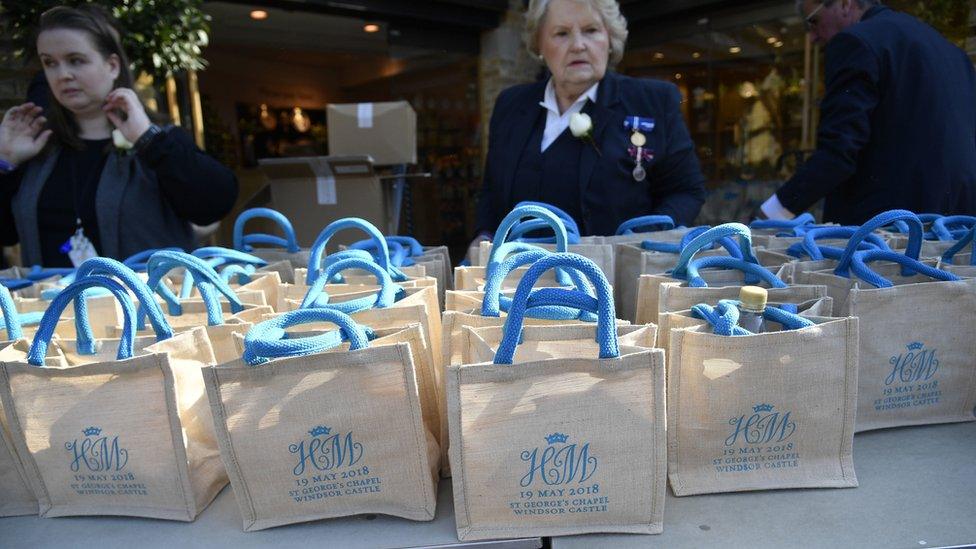Royal Wedding 2018: The story behind Stand By Me
- Published
The Kingdom Choir performed Stand By Me at Prince Harry's wedding to Meghan Markle
"Oh darling, darling..."
These sound like words from a straightforward love song, but everyone who heard it performed in St George's Chapel on Saturday knew that Stand By Me was more than that.
And there's a reason that the song sounded right coming from the gospel singers of the Kingdom Choir. Here's a line from the book of Psalms that sounds very much like the second verse:
"Therefore will not we fear, though the Earth be removed, and though the mountains be carried into the midst of the sea."
Royal wedding 2018: The music behind the ceremony
Stand By Me sounds like gospel because it was once a hymn which adapted that psalm. It was published in 1905 by Charles Albert Tindley, though it may go further back into the black American oral tradition.
A 'civil rights anthem'
Tindley was a slave's son who volunteered as a janitor at an Episcopalian church in Philadelphia. He taught himself Greek through a correspondence course and learned Hebrew at a local synagogue, and eventually became the church's pastor, addressing its mixed-race congregations much like Michael Curry, who delivered the address at Saturday's wedding. He also wrote a collection of gospel numbers.
Flash-forward to 1960. Ben E. King - who knew his gospel - had left his successful band The Drifters over a contractual dispute, and he was wavering between chasing a solo career and asking for a job in his father's restaurant.
One evening, in his bedroom "with a cheap guitar", he noodled about, finding an update of Tindley's song. Proud of what he'd done, he sent it to his old band. "We don't need it," they replied.
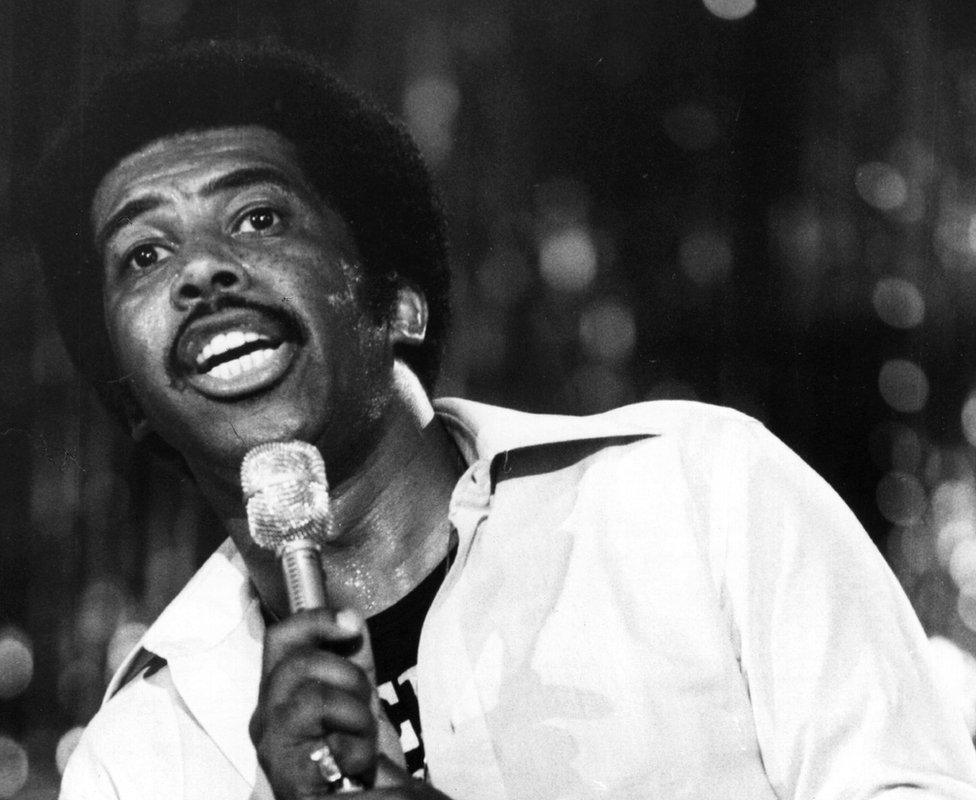
Ben E King was the first to turn Stand By Me into a mainstream hit
So it was that, when King got a recording contract, and had a quarter of an hour spare at the end of a studio session, his producers asked whether he had anything knocking around to fool around with.
He sang Stand By Me acapella; everyone set to work. The producers - serial hit-makers Lieber and Stoller - added a Brazilian-inspired baiaó rhythm.
They upended a snare drum and scraped a brush across the wire for that scratchy sound which is one of the song's many hooks; as King recalled it, Lieber and Stoller were always seeking "that one little thing that your ear would pick up on and would not turn you loose".
A young Phil Spector was also there, contributing ideas.
In 2011, King explained how The Drifters turned down Stand By Me
Then they decided to add an orchestra. The sessions ran into overtime, they got into trouble with the record label… until it became a hit.
In fact, it's found success many times over, constantly adapted to new ends. In the movie that borrowed its title, it's about the strength of friendship among 12-year-old boys; in T-Rex's version, it's about unity among the hippie children.
But in the original — and in the hymn that inspired it — something else is going on. Historian Craig Werner says that in the context of 1960s America, a black man singing the words "No, I won't be afraid" is "a classic case of political masking".
Allow YouTube content?
This article contains content provided by Google YouTube. We ask for your permission before anything is loaded, as they may be using cookies and other technologies. You may want to read Google’s cookie policy, external and privacy policy, external before accepting. To view this content choose ‘accept and continue’.
In other words, Stand By Me became a covert protest song, sung alongside We Shall Overcome - which was also based on one of Tindley's hymns.
Chuck Scruggs, a black American DJ, recalled putting the song to political use. "I'd go from a message song like [The Impressions'] Keep On Pushing to, say, Stand By Me. You see what I mean?… Stand by me people, cause we gotta keep on pushing for our freedom."
For many, this ballad is also, in fact, a civil-rights anthem.
That's why Harry and Meghan's choice of song meant more than if they'd gone with, say, Ed Sheeran's Shape Of You, external. And the performance by the Kingdom Choir takes Stand By Me back further still, re-infusing it with the defiance as well as the devotion of gospel.

Follow us on Facebook, external, on Twitter @BBCNewsEnts, external, or on Instagram at bbcnewsents, external. If you have a story suggestion email entertainment.news@bbc.co.uk.
- Published21 May 2018
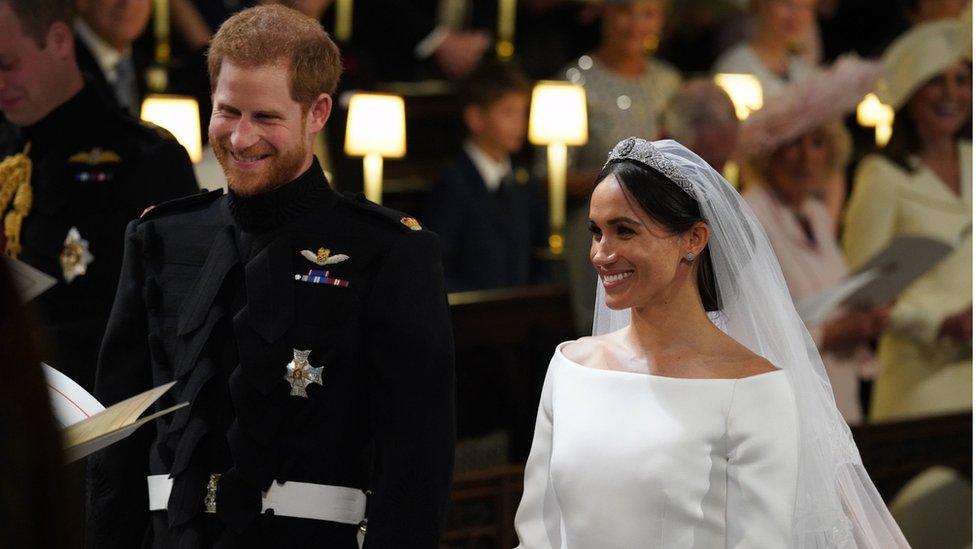
- Published21 May 2018
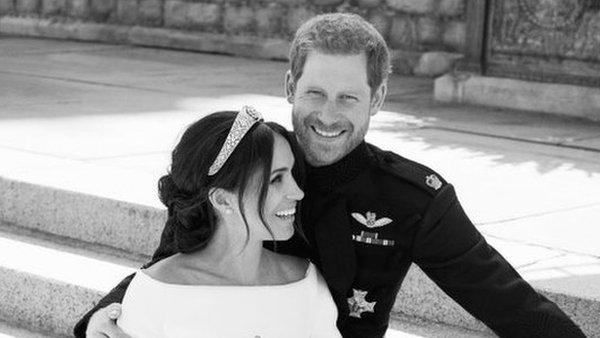
- Published19 May 2018
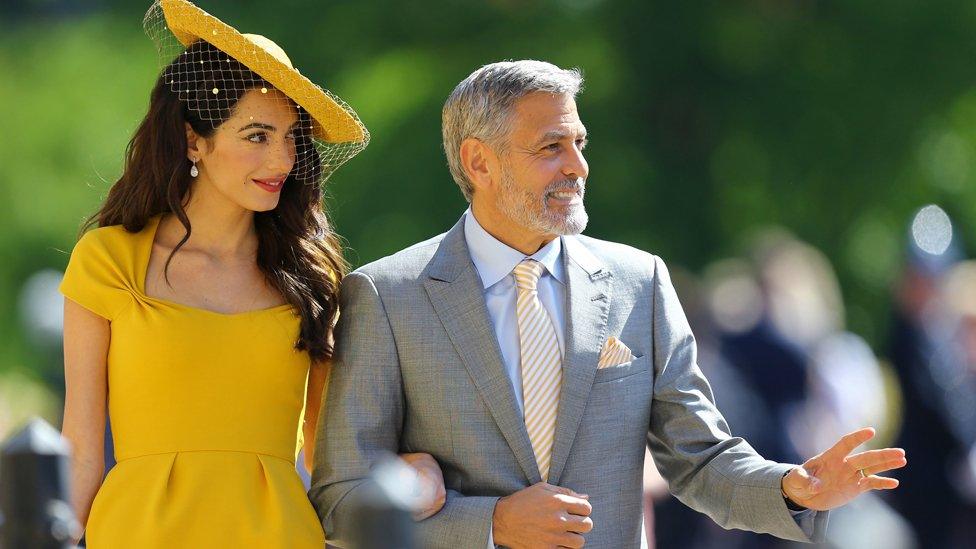
- Published21 May 2018
